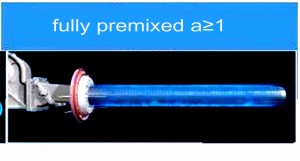Dec . 03, 2024 12:15 Back to list
common aluminum alloys
Common Aluminum Alloys A Comprehensive Overview
Aluminum is one of the most widely used metals in various industries due to its lightweight, corrosion resistance, and excellent machinability. Among the many aluminum alloys available, several categories stand out for their unique properties and applications. These alloys can be broadly classified into two main groups wrought and cast alloys. Each type has specific characteristics determined by its composition and processing methods.
Wrought Aluminum Alloys
Wrought aluminum alloys are made by mechanically working the metal into desired shapes. They are indicated by a four-digit numerical designation that starts with a leading digit representing the alloying element. The most common wrought aluminum alloys include the 1xxx, 2xxx, 3xxx, 4xxx, 5xxx, 6xxx, 7xxx, and 8xxx series.
- 1xxx Series These alloys are composed of 99% or higher aluminum content. They are known for excellent corrosion resistance and high electrical conductivity. Common applications include electrical conductors and chemical handling applications.
- 2xxx Series Alloyed primarily with copper, the 2xxx series offers high strength and workability. However, they have lower corrosion resistance compared to other series. They are widely used in aerospace applications where strength is critical.
- 3xxx Series This series usually contains manganese as the primary alloying element. It provides good corrosion resistance and formability, making it popular for beverage cans and cooking equipment.
- 4xxx Series Primarily alloyed with silicon, 4xxx alloys are used in welding wire and filler materials. Their lower melting point makes them suitable for applications where ease of welding is critical.
- 5xxx Series These alloys, featuring magnesium as the primary alloying element, are known for their excellent corrosion resistance and weldability. They are commonly used in marine environments, automotive components, and architectural applications.
common aluminum alloys

- 6xxx Series This series is alloyed with magnesium and silicon, offering a good balance of strength, corrosion resistance, and workability. Applications include structural components, automotive parts, and architectural framing.
- 7xxx Series Known for their high strength, these alloys typically contain zinc as the main alloying element. They are often utilized in aerospace applications and sporting equipment, such as bicycles.
- 8xxx Series These alloys are used for specific applications that do not fit into the previous categories. They may include elements like lithium, which offers lightweight solutions for aerospace applications.
Cast Aluminum Alloys
Cast aluminum alloys are manufactured by pouring molten aluminum into molds. They are designated by a four-digit number system with a decimal point indicating the major alloying elements. The two primary groups of cast aluminum alloys are the 1xx.x series (essentially pure aluminum) and the 2xx.x to 8xx.x series that contain varying alloying elements.
Cast alloys offer benefits such as improved design flexibility and densely packed dimensions for complicated shapes. Common applications include automotive engine components, housing, and decorative items.
Choosing the Right Alloy
When selecting the appropriate aluminum alloy, various factors must be considered, including mechanical properties, corrosion resistance, welding and fabrication capabilities, and the intended application. Each series possesses unique advantages and limitations that cater to specific requirements across industries.
In conclusion, aluminum alloys play a crucial role in modern engineering and manufacturing. The variety of properties available within the different series allows for a broad spectrum of applications, from lightweight aerospace structures to durable automotive components. As technologies and material science continue to advance, the use of aluminum alloys is expected to expand further, offering innovative solutions to meet the demands of future projects. Whether it’s creating components for aerospace or designing energy-efficient buildings, the choice of aluminum alloy can significantly influence the final product's performance and longevity.
-
Centrifugally Cast Iron Water Main Pipe | Ductile Iron Solutions
NewsAug.24,2025
-
Durable Cast Steel Concrete Pipe Mold Bottom Rings & Base Trays
NewsAug.23,2025
-
Centrifugally Cast Iron Water Main Pipe for Reliable Mains
NewsAug.22,2025
-
Durable Centrifugally Cast Iron Water Main Pipe
NewsAug.11,2025
-
Centrifugally Cast Iron Water Main Pipes for Reliability
NewsAug.10,2025
-
High-Quality Centrifugally Cast Iron Water Main Pipes
NewsAug.09,2025


